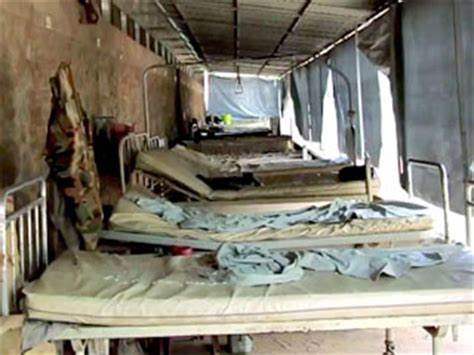Joint statement by Dr Ahmed Al-Mandhari, WHO Regional Director for the Eastern Mediterranean, and Dr Matshidiso Moeti, WHO Regional Director for Africa.
The relentless fighting that has raged in Sudan since April continues to claim lives, force people from their homes and country, and leave others trapped with limited access to essential services, including health care.
Three months of conflict have left the country facing a catastrophic humanitarian crisis that has spilled into six countries across two WHO regions, with 24 million people in need of humanitarian aid, including 2.6 million people internally displaced, and an additional 757 000 forced to flee across borders for safety. These numbers are growing every day.
Inside Sudan, the situation has reached gravely serious levels, with more than 67% of the country’s hospitals out of service and with increasing reports of attacks on health care. Between 15 April 2023 and 24 July 2023, 51 attacks on health care have been verified by WHO, resulting in 10 deaths and 24 injuries. It is a tragedy and an outrage that in the middle of this deepening crisis fighters continue to attack health facilities and workers, denying life-saving services to innocent civilians when they are at their most vulnerable.
When war wages, women and children will always pay a big price. We are appalled by reports of sexual and gender-based violence against women and girls; those who are displaced are especially vulnerable. Today, more than 4 million women and girls are at risk of sexual and gender-based violence, and they must be protected at all costs.
Disease outbreaks – including malaria, measles, dengue, and acute watery diarrhoea – that had been well under control before the current conflict are increasing due to the disruption of basic public health services, including disease surveillance, functioning public health laboratory and rapid response teams. As the rainy season begins in Sudan, outbreaks are likely to claim more lives unless urgent action is taken to restore their spread.
Even before the current conflict, Sudan was facing enormous humanitarian and health needs as a result of conflict, food insecurity, and climate change and poorly functioning health system.
The current situation – without immediate prospects of peace –is only complicating access and delivery of humanitarian assistance, including emergency health supplies. In Sudan humanitarian access remains extremely limited.
For the hundreds of thousands who have sought refuge across borders, life remains precarious. Access to health services varies widely: many border areas where they have settled are remote with limited or weak health systems, including inadequate numbers of health workers. Several receiving countries—including the Central African Republic, Chad, Ethiopia, and South Sudan—already host large numbers of people displaced by protracted conflicts and who face dire living conditions without essential services. Still, the need is great and growing.
WHO is doing everything possible to provide essential health services. Our teams are on the ground since the eruption of the armed violence working tirelessly to ensure health services are still accessible. We are actively working with partners in country and across the borders to ensure urgently needed life-saving medical supplies are delivered to those in need and surveillance system is strengthened to detect disease outbreaks and allow a rapid response.
We stand with the people of Sudan and are committed to stay and deliver lifesaving aid despite the serious challenges impeding our response. We call for the protection of civilians, humanitarian workers, health facilities, personnel and patients, whose safety must be respected by all warring parties.

